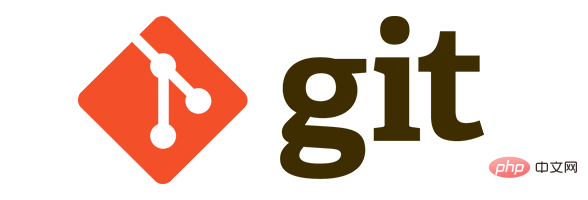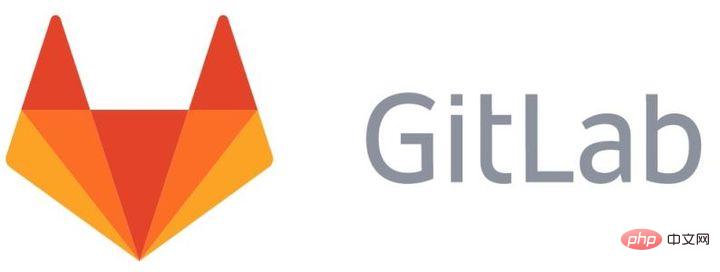What is the difference between gitlab and git
The difference between gitlab and git: Git is a version control system and a tool used for code storage and version control; GitLab is an online code warehouse software based on Git, used for Centralized cloud storage provides development teams with a place to store, share, publish, and collaborate on development projects.

The operating environment of this tutorial: Windows 7 system, Git version 2.30.0, Dell G3 computer.
Git
Git (pronounced /gɪt/.) is an open source distributed version control system that can be effective, Handle version management of projects from very small to very large at high speed. Git is an open source version control software developed by Linus Torvalds to help manage Linux kernel development.
Torvalds started developing Git as a transitional solution to replace BitKe

#Git background: Like many great things in life, Git It was born in an era of great strife and innovation. The Linux kernel open source project has a wide range of participants. The vast majority of Linux kernel maintenance work was spent on the tedious task of submitting patches and saving archives (1991-2002). By 2002, the Linux system had been developing for ten years. The code base was so large that it was difficult for Linus to continue to manage it manually, so the entire project team began to use the distributed version control system BitKeeper to manage and maintain the code.
By 2005, the partnership between the commercial companies that developed BitKeeper and the Linux kernel open source community ended, and they took back the right to use BitKeeper for free. This forces the Linux open source community (especially Linus Torvalds, the creator of Linux) to learn a lesson. Only by developing a version control system of its own can they avoid making the same mistakes again.
GitLab
GitLab is an open source project for warehouse management system. It uses Git as a code management tool and is built on this basis. up web services. The installation method is to refer to GitLab's Wiki page on GitHub.

GitLab is a web-based Git warehouse management tool developed by GitLabInc. using the MIT license and has wiki and issue tracking functions. Use Git as a code management tool and build a web service based on this.
GitLab was developed by Ukrainian programmers Dmitriy Zaporozhets and Valery Sizov and is written in Ruby. Later, some parts were rewritten in Go language. As of May 2018, the company had approximately 290 team members and more than 2,000 open source contributors. GitLab is used by organizations such as IBM, Sony, Jülich Research Center, NASA, Alibaba, Invincea, O’Reilly Media, Leibniz-Rechenzentrum (LRZ), CERN, SpaceX, and more.
The difference between Git, GitHub and GitLab
Git is a version control system and a tool used for code storage and version control.
GitHub is an online code warehouse based on Git. It is currently the world's largest code hosting platform and can help programmers communicate and learn from each other.
GitLab is an online code warehouse software based on Git. You can use GitLab to build a warehouse similar to GitHub, but GitLab has a complete management interface and permission control. It is generally used in enterprises and schools. Wait for the internal network to build a Git private server.
GitHub and GiLlab are both web-based Git remote warehouses. They both provide a platform for sharing open source projects and provide development teams with centralized cloud storage for storing, sharing, publishing and collaborative development projects. place. From the perspective of code privacy, GitLab is a better choice. But for open source projects, GitHub is still the first choice for code hosting.
Recommended learning: "Git Tutorial"
The above is the detailed content of What is the difference between gitlab and git. For more information, please follow other related articles on the PHP Chinese website!

Hot AI Tools

Undresser.AI Undress
AI-powered app for creating realistic nude photos

AI Clothes Remover
Online AI tool for removing clothes from photos.

Undress AI Tool
Undress images for free

Clothoff.io
AI clothes remover

Video Face Swap
Swap faces in any video effortlessly with our completely free AI face swap tool!

Hot Article

Hot Tools

Notepad++7.3.1
Easy-to-use and free code editor

SublimeText3 Chinese version
Chinese version, very easy to use

Zend Studio 13.0.1
Powerful PHP integrated development environment

Dreamweaver CS6
Visual web development tools

SublimeText3 Mac version
God-level code editing software (SublimeText3)

Hot Topics
 1393
1393
 52
52
 1207
1207
 24
24
 How to update code in git
Apr 17, 2025 pm 04:45 PM
How to update code in git
Apr 17, 2025 pm 04:45 PM
Steps to update git code: Check out code: git clone https://github.com/username/repo.git Get the latest changes: git fetch merge changes: git merge origin/master push changes (optional): git push origin master
 How to download git projects to local
Apr 17, 2025 pm 04:36 PM
How to download git projects to local
Apr 17, 2025 pm 04:36 PM
To download projects locally via Git, follow these steps: Install Git. Navigate to the project directory. cloning the remote repository using the following command: git clone https://github.com/username/repository-name.git
 What to do if the git download is not active
Apr 17, 2025 pm 04:54 PM
What to do if the git download is not active
Apr 17, 2025 pm 04:54 PM
Resolve: When Git download speed is slow, you can take the following steps: Check the network connection and try to switch the connection method. Optimize Git configuration: Increase the POST buffer size (git config --global http.postBuffer 524288000), and reduce the low-speed limit (git config --global http.lowSpeedLimit 1000). Use a Git proxy (such as git-proxy or git-lfs-proxy). Try using a different Git client (such as Sourcetree or Github Desktop). Check for fire protection
 How to use git commit
Apr 17, 2025 pm 03:57 PM
How to use git commit
Apr 17, 2025 pm 03:57 PM
Git Commit is a command that records file changes to a Git repository to save a snapshot of the current state of the project. How to use it is as follows: Add changes to the temporary storage area Write a concise and informative submission message to save and exit the submission message to complete the submission optionally: Add a signature for the submission Use git log to view the submission content
 How to delete a repository by git
Apr 17, 2025 pm 04:03 PM
How to delete a repository by git
Apr 17, 2025 pm 04:03 PM
To delete a Git repository, follow these steps: Confirm the repository you want to delete. Local deletion of repository: Use the rm -rf command to delete its folder. Remotely delete a warehouse: Navigate to the warehouse settings, find the "Delete Warehouse" option, and confirm the operation.
 How to merge code in git
Apr 17, 2025 pm 04:39 PM
How to merge code in git
Apr 17, 2025 pm 04:39 PM
Git code merge process: Pull the latest changes to avoid conflicts. Switch to the branch you want to merge. Initiate a merge, specifying the branch to merge. Resolve merge conflicts (if any). Staging and commit merge, providing commit message.
 How to solve the efficient search problem in PHP projects? Typesense helps you achieve it!
Apr 17, 2025 pm 08:15 PM
How to solve the efficient search problem in PHP projects? Typesense helps you achieve it!
Apr 17, 2025 pm 08:15 PM
When developing an e-commerce website, I encountered a difficult problem: How to achieve efficient search functions in large amounts of product data? Traditional database searches are inefficient and have poor user experience. After some research, I discovered the search engine Typesense and solved this problem through its official PHP client typesense/typesense-php, which greatly improved the search performance.
 How to submit empty folders in git
Apr 17, 2025 pm 04:09 PM
How to submit empty folders in git
Apr 17, 2025 pm 04:09 PM
To submit an empty folder in Git, just follow the following steps: 1. Create an empty folder; 2. Add the folder to the staging area; 3. Submit changes and enter a commit message; 4. (Optional) Push the changes to the remote repository. Note: The name of an empty folder cannot start with . If the folder already exists, you need to use git add --force to add.




